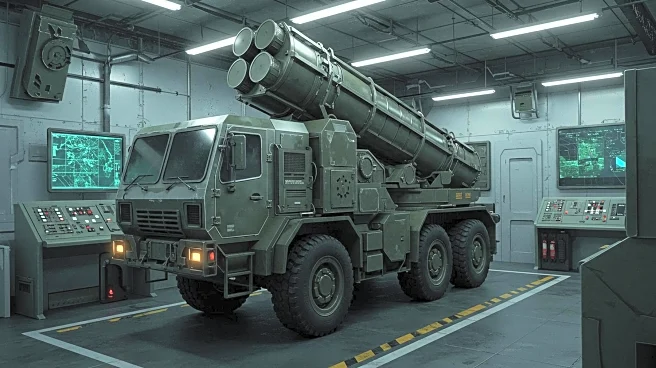What's Happening?
Australia has requested the U.S. government to approve the sale of 161 Javelin Lightweight Command Launch Units (LwCLU) and ancillary gear, valued at approximately $97.3 million. The U.S. State Department has approved this potential foreign military sale, which complements an existing agreement below the congressional notification threshold. The Javelin Joint Venture, a collaboration between RTX and Lockheed Martin, is the principal contractor for this transaction. The sale includes non-major defense equipment such as training equipment, battery coolant units, missile simulation rounds, manuals, spare parts, and logistics support. The U.S. Defense Security Cooperation Agency (DSCA) has notified Congress, emphasizing the strategic importance of supporting Australia's defense capabilities.
Why It's Important?
This sale underscores the strategic alliance between the U.S. and Australia, particularly in the Western Pacific region. Enhancing Australia's defense capabilities with advanced missile systems strengthens its deterrence posture against potential threats and contributes to collective anti-armour efforts. The transaction supports U.S. foreign policy and national security objectives by bolstering an important ally's self-defense capabilities. For Lockheed Martin and RTX, this deal represents a significant business opportunity, reinforcing their roles as key defense contractors in international markets.
What's Next?
Following congressional notification, the sale is expected to proceed without requiring additional U.S. personnel in Australia. Future negotiations may determine any offset agreements related to the sale. Australia will integrate the Javelin LwCLUs into its defense forces, enhancing its surface-to-surface missile capabilities. The U.S. and Australia may explore further defense collaborations, potentially involving additional equipment or technology transfers.
Beyond the Headlines
The sale reflects broader geopolitical dynamics in the Indo-Pacific region, where military alliances and defense capabilities are increasingly important amid rising tensions. It highlights the role of defense contractors in shaping international relations and security policies. The transaction may influence future defense procurement strategies and collaborations between the U.S. and its allies.









